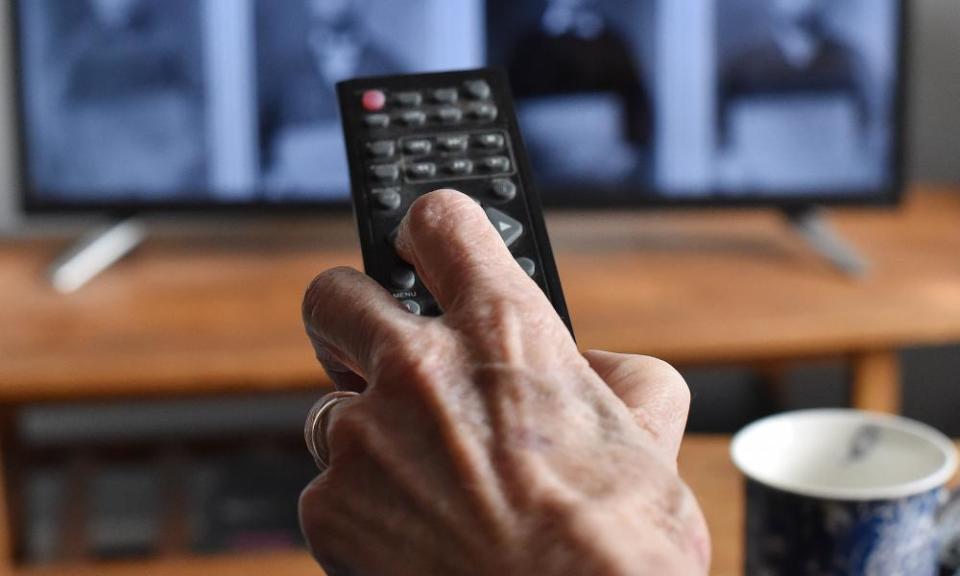The BBC will be attacked for charging over-75s licence fees. But it's not to blame

Only those over 75 were alive when the Beveridge report laid the foundations for the postwar welfare state in 1942. This universal system was designed to combat what William Beveridge termed the five “giant evils” of “want, disease, ignorance, squalor and idleness”. Nearly 80 years later, few of these problems have disappeared. Even before coronavirus brought the UK to a standstill, 4 million children were living in poverty. Yet when the BBC announced it would means-test its licence fee for over-75s from 1 August, howls of outrage were directed at the fact that 3 million older people, judged to be able to afford £157.50 a year using the government’s measure of pension credit, would have to pay for their television licence themselves.
What about those children living in poverty? Do they not need homegrown news, education and entertainment? If the BBC were acting in its own interests, it would surely give these children the chance to become lifelong BBC viewers, particularly now that young people are deserting public broadcasters. But it shouldn’t be the BBC’s role to decide who benefits from watching free TV. The broadcaster’s purpose is to provide news, entertainment and education, a purpose that has been shown to its best effect during the lockdown. It was never meant to decide how to help the aged.
It’s only during the past 20 years of the BBC’s almost 100-year history that over-75s haven’t been required to pay the licence fee. First introduced as a welfare benefit by Labour in 2000, successive governments recompensed the BBC for its lost income. But George Osborne saw the benefit as a chance to offload costs as part of his austerity agenda, first in 2010 and successfully in 2015. The latest licence fee settlement shifted the cost of the policy to the BBC, while also suggesting that the corporation could look at “reforming” how it was delivered.
Boris Johnson might grumble on about how wrong the BBC is to stop providing free licence fees for all, and Julian Knight, the chair of the Department of Culture, Media and Sport Commons committee, may call the decision “a body blow to millions of British pensioners”, but it was the last Conservative government that gave the BBC the power to decide whether it should continue paying an estimated £745m by 2021-22 or close channels such as BBC Two. The corporation has spent years threatening its most beloved services with closures. On the same day that high-street companies Boots and John Lewis cut thousands of jobs, this decision about the over-75s licence fee is clearly about budgetary constraints.
The timing couldn’t be worse. Although the national lockdown has eased, most over-70s are still consigned to their homes for long periods at a time, shielding from the increased risk of a virus that has not disappeared. The Age UK campaign against the return of the licence fee for the over-75s calls TV a “life support machine” for many. Few of us with elderly relatives would disagree. The charity also argues that the government’s measure of poverty in the elderly – offset by pension credit – is wrong, estimating that two-thirds of the 3 million people set to be charged on 1 August will have to cut back on heating and food to pay the licence fee. Using the pension credit measure, 1.5 million pensioners would continue to receive free licences under the new system.
Related: BBC in row with No 10 over decision to restrict free TV licences
In one of his feistiest comments as BBC chairman yet, David Clementi blamed the government for the board’s decision to support only the very poorest pensioners. As he put it, “it is not the BBC making that judgment about poverty. It is the government who sets and controls that measure”. But taking the fight back to the government will have consequences for the corporation. BBC insiders accept that the campaign to decriminalise non-payment of the licence fee will be difficult to resist for much longer. Just one case of an older person whose dementia or other health issue has led them to court for a missed licence fee payment will make it so.
A far bigger concern, but one the BBC optimistically hopes to see off until the next full licence fee settlement in 2027, is the future of the licence fee itself. Introducing means-testing for part of a universal service is one step closer to the subscription model that many Conservatives have argued for. This will be far more dangerous for the broadcaster than a recent campaign to #defundtheBBC launched by a Glasgow university student or, as the Express put it, “a kid in his room with a laptop frustrated at the way the BBC conducts themselves”.
Yet both will get far more coverage in the Express and other newspapers than those 4 million children living below the breadline, for whom the BBC’s education, entertainment and news programmes are also a lifeline.
• Jane Martinson is a Guardian columnist

 Yahoo Sports
Yahoo Sports 